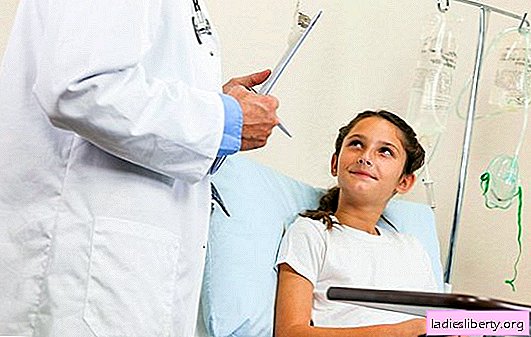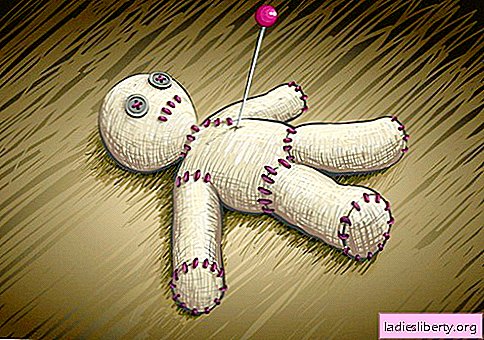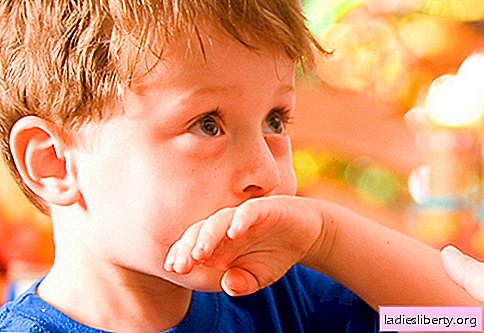
Every day, throughout his life, a person interacts with various chemicals and reagents, some of which can be extremely dangerous. One such substance is rat poison. Rats and other small rodents have been constant companions of humanity for thousands of years.
Rat poison is the most radical means of fighting rats and mice. It must be borne in mind that the toxic substances themselves, designed to kill rodents, are heterogeneous and carry varying degrees of danger.
To protect yourself, you should carefully understand the issue.
It should be noted that rat poison itself is heterogeneous. This is a group of similar toxic substances with varying degrees of effectiveness. The most dangerous for humans is rats. It is rarely used and only in cases of high resistance of rodents to milder reagents. No less dangerous are such drugs as arsenic, phosphorus and others. Anticoagulants such as zoocoumarins have a mild effect. They are considered safer for people and pets.
Causes of Rat Poison Poisoning
Unintentionally poisoning with modern drugs against rats is almost impossible. However, if we talk about old substances - the risk increases significantly. Fortunately, in recent years, not a single case of fatal poisoning has been recorded in Russia. But this does not mean the absence of intoxication cases at all. There are several reasons for poisoning with rat poison:
1) Alimentary reason. The most common cause of rat poison poisoning. In this case, the poisonous substance enters the body directly with food. The destructive reagent is rapidly absorbed in the gastrointestinal tract and spreads throughout the body with a blood stream. The risk group includes people living in places where the destruction of rodents and, especially, children. Over the past 4 years, 20 cases of poisoning have been identified. All patients are young.
2) Inhalation of particles of a toxic substance. It can also be a direct cause of intoxication. In this case, the path of penetration is the lungs.
3) Penetration of a poisonous substance through open wounds, cuts.
Intoxications can happen for various reasons, the most common is eating poisoned poison.
Rat poison poisoning: all symptoms
All the symptoms of rat poison poisoning are usually non-specific and can occur in various diseases.
Differential diagnosis (that is, the distinction between one and the other diseases and conditions) of poisoning with poison is not the task of the patient, but the doctor. Therefore, do not let things go by chance, at the first manifestations indicated below, you should immediately seek medical help.
A typical picture of poisoning with “soft” drugs does not develop immediately.
The substance is slowly released and poisons the body.
The symptomatic complex appears 3-6 days after intoxication.
Signs of rat poison poisoning include:
• Headache. Headache is a companion of any poisoning, poisoning with rat poison is no exception. The pain syndrome is constant, analgesics are reduced only for a short time.
• Nausea, vomiting. As well as headache are nonspecific symptoms.
Both the first and second signs of rat poison poisoning are due to the effect of a toxic substance on the brain.
• Unexplained weakness, drowsiness. Manifest one of the first.
• Internal and external bleeding. When poisoning with light reagents, bleeding of the gums develops, and blood coagulation deteriorates. Severe poisons, such as arsenic, increase vascular fragility and interfere with normal blood coagulation. If we are talking about severe poisoning, there is a high probability of internal bleeding and death.
• Pallor of the skin due to poor blood circulation and malnutrition of peripheral vessels and tissues.
• Other symptoms are somewhat less common: bleeding from the nose, anus, etc.
There are many signs, as far as one can judge. Determining the source of the problem yourself is not so simple.
First aid for rat poison poisoning
The prognosis and likelihood of complications depend on how well and timely first aid is provided for rat poison poisoning. The rules of first aid should everyone know. How to provide emergency care?
1) When taking the poison orally, the gastrointestinal tract should be cleaned. For this, gastric lavage is performed (either at home or in a hospital). At home, you need to drink 3-4 glasses of salted water and put pressure on the root of the tongue to provoke a gag reflex. The procedure should be repeated 2-3 times until clear water appears.
2) In case of poisoning, it is recommended to drink 1-1.5 liters of water for several hours. So the absorption of the poison will be slowed down.
3) Reception of adsorbents. We can talk about activated carbon, "newfangled" means like white coal, etc. Activated carbon is taken at the rate of 2-3 tablets for every 10 kg of weight. Adsorbents absorb harmful substances and reduce toxic damage to the body.
4) The next step is cleansing the intestines. This is important for two reasons: firstly, toxins quickly “make their way” into the small and large intestines, especially if several hours have passed since the poisoning. Secondly, the substance can begin to be released again from activated carbon, which moves through the intestines. To wash the intestines, an Esmarch mug is used. In children - a syringe.
To prevent penetration of the substance through open wounds, it is enough to wash off rat poison with running warm water (ordinary tap water will do). The same applies to contact with the eyes and / or nose.
Rat Poison Poisoning Treatment
Treatment is required only in severe cases. In all other situations, treatment of rat poison poisoning is limited to first aid.
The duration of therapy is about a month in a hospital. In the treatment, specific antidotes (Phytomenadion), diuretics, laxatives, hepatoprotectors are used.
These drugs minimize complications.
In the most difficult cases, plasma transfusions cannot be dispensed with.
Rat Poison Poisoning Prevention
Special methods for the prevention of rat poison poisoning do not exist. It is enough to adhere to common sense.
• It is not recommended to poison rodents with poisons. This is an extreme, radical method. Preference should be given to non-chemical methods of getting rid of rats and mice: you can get a cat, use peppermint, etc.
• If you still can’t do without poisons, you should give preference to mild poisons. Fortunately, today the market offers a huge assortment of relatively safe long-acting drugs. Buying deadly drugs based on arsenic and other toxic compounds is not worth it. Is it dangerous.
• Wash hands thoroughly after any contact with poison.
• To prevent child poisoning, poisons must not be scattered across the floor and left unattended.
Rat Poison Complications
No poisoning goes unnoticed. This is true for rat poison. This is a very insidious and dangerous reagent, complications from which appear after months or even years.
The main and most terrible consequence is secondary hemophilia (violation of blood coagulation). Hemophilia is manifested by the occurrence of bleeding of the gums, mucous membranes, nosebleeds, prolonged hemorrhages even with banal cuts, etc. In extreme cases, internal bleeding is possible.
To avoid this fate, the patient is recommended to take vitamin K.
In addition to hemophilia, there are impaired liver and kidney function.
Rat poisoning does not occur as often as before. However, it doesn’t get any easier from this: poisoning the patient risks serious problems with the liver, kidneys, and hematopoietic system.
To avoid trouble, you need to adhere to the rules of prevention. If the trouble nevertheless overtakes, you need to know how first aid is provided. This is a guarantee of maintaining health.











